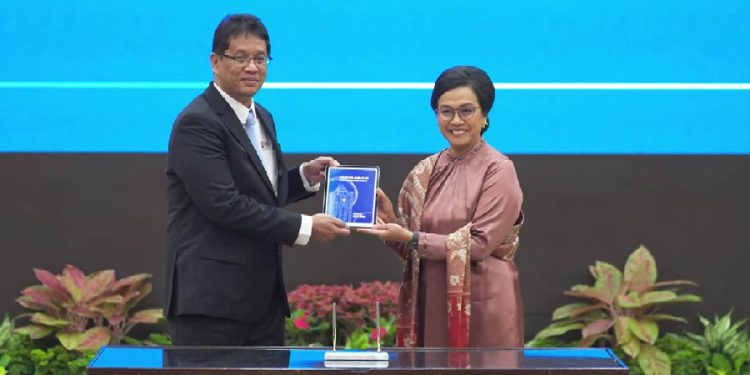Jakarta, Indonesia Sentinel — President Prabowo Subianto has officially replaced Sri Mulyani Indrawati as finance minister, appointing Purbaya Yudhi Sadewa to the post. The Center of Economic and Law Studies (Celios) quickly outlined five urgent tasks awaiting the new minister.
Celios described the reshuffle as a positive signal for Indonesia’s economic direction. “The announcement of Sri Mulyani’s replacement is good news for the economy,” the institute said in a statement on Monday (September 9).
Therefore, Bhima Yudhistira, Celios’ executive director, said Purbaya faces a series of pressing challenges.
First, new minister must ensure tax policy supports lower and middle income households, including reducing value-added tax (VAT) to 8% and raising the non-taxable income threshold to Rp 7 million ($430) per month.
Celios also urged new levies targeting extractive industries, such as a coal production tax and a windfall profits tax, alongside a 2% wealth tax on ultra-rich Indonesians to boost revenue and curb inequality.
Second, budget efficiency must be carried out based on transparent macroeconomic reviews, ensuring cuts do not disrupt public services or basic infrastructure. Celios criticized recent measures that hurt regional transfers and triggered local tax hikes.
Read Also:
Prabowo Reshuffles Cabinet, Replaces Finance Minister Sri Mulyani
Third, Purbaya was urged to restructure Indonesia’s public debt, reduce interest burdens, and explore innovative financing mechanisms such as debt-for-nature and debt-for-energy swaps, or even partial debt cancellation.
Fourth, Celios recommended removing deputy ministers and officials at the finance ministry who simultaneously hold positions at state-owned enterprises (BUMN), warning of conflicts of interest despite a Constitutional Court ruling against the practice.
Fifth, demanded a review of tax incentives, including holidays and allowances, insisting that companies benefiting from such perks undergo audits to prove their impact on job creation.
Incentives, Celios said, must no longer deepen inequality between large corporations and small businesses, and should be disclosed to the public regularly.
“As an independent research institute, Celios will continue to monitor the finance minister’s policies critically and objectively, based on data,” the statement said.
(Raidi/Agung)


























